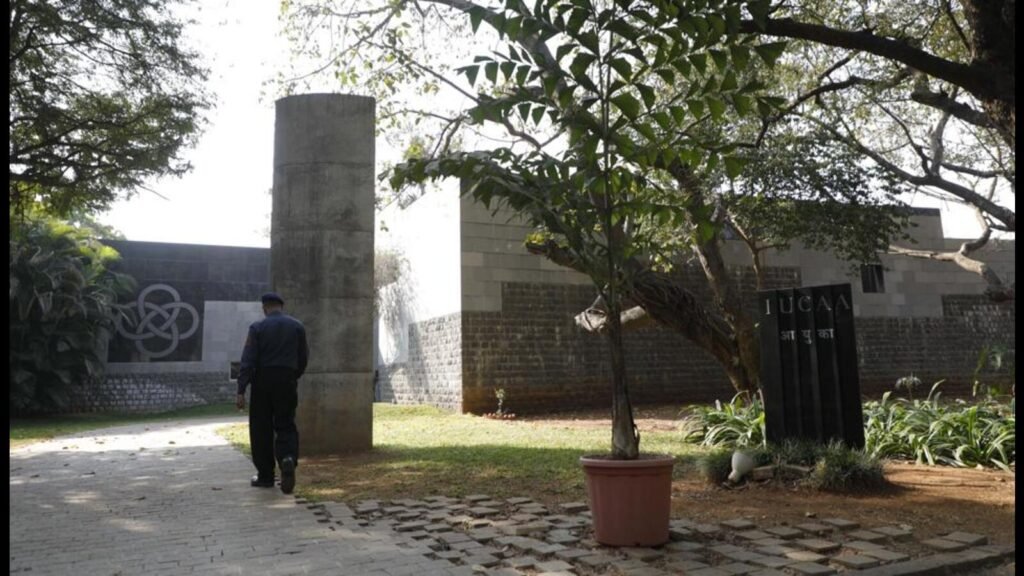
Behind many of India’s most remarkable achievements lies a common force: High-quality institutions that empower generations to build paths that once seemed impossible. From designing AI-powered mosquito-tracking systems that prevent disease outbreaks to breakthroughs in space exploration to artists from rural India performing on world-class stages, these milestones are not incidental. They are visible outcomes of decades of collective effort, deep, purpose-driven investment in the centers of excellence we have incubated and nurtured, and unwavering belief in human potential.

Born of visionary intent to confront India’s defining challenges, and to reinforce its cultural mores and civilizational values, institutions such as the Indian Institute of Science (IISc), Bengaluru. and the National Center for Performing Arts (NCPA), stand out as multi-generational legacies of impact. Across the decades, philanthropic leadership in India has not only supported existing centers of excellence but also actively incubated new institutions that address the emerging needs of our society.
Examples such as the Tata Institute of Fundamental Research (TIFR), Tata Memorial Center and the Tata Institute of Social Sciences, illustrate how long-term philanthropy, rooted in partnership and mentorship, has helped seed early-stage organizations that have grown into nationally and globally recognized pillars of progress. This commitment to institutional incubation, from ideation, sustained mentorship, investment, and collaborative networks, has enabled pathbreaking solutions and empowered new generations of talent across health care, education, technology, and social sciences, contributing to India’s transformation.
The true imprint of such institutions does not reside only in history books or research papers. It lives in the stories of those who carry these learnings into the world — scientists, artists, and changemakers whose ideas, nurtured first in classrooms or laboratories, ripple outward, touching lives, shifting systems, and quietly rewriting what’s possible. We see it in rockets that carry hope and in breakthroughs in energy, health, and climate action.
Our past shows us what this looks like. Nobel Prize laureate CV Raman’s leadership at IISc, Jayant Narlikar’s stewardship of the Inter-University Center for Astronomy & Astrophysics (IUCAA), Pune, and Homi Bhabha and JRD Tata’s vision for TIFR — all left us stronger than before. They turned fledgling institutions into engines of discovery, built ecosystems that nurtured innovation, and laid the foundations for India’s scientific self-reliance. We stand on the shoulders of such visionaries — inspired not just to protect their enduring impact, but to extend it.
As the nature of our challenges evolves, so must our institutions. India’s aspirations multiply, and more Indians rise to meet them. The problems we face today cannot be solved in silos, be it the climate crisis, the AI evolution, or antimicrobial resistance. Consider this: By 2050, India could lose almost 3% of its annual GDP due to climate-induced productivity losses. At the same time, India’s share of the global workforce is set to grow dramatically, creating both opportunities and responsibilities. These intersecting realities demand institutions that go beyond producing knowledge. They must break disciplinary boundaries and bring together technology, communities, and policy under one roof.
The role our institutions play in solving global problems has never been more crucial. The climate crisis is redrawing coastlines and straining health systems. In 2024 alone, 5.4 million people in India were internally displaced due to disasters like floods and storms, the highest in more than a decade. In such times, these must be more than places of learning. They must become platforms where diverse voices come together to co-create solutions at scale.
Institutions act as connectors and enablers: meeting people where they are and opening doors to a more equitable future. As Nobel Prize laureates Daron Acemoglu and James A Robinson remind us in Why Nations Fail, inclusive, adaptive, and resilient institutions, and not growth alone, make progress lasting and fair.
The true strength of institutions will be measured when knowledge translates into action. During the recent pandemic, Indian institutions were central to enabling the delivery of Covid-19 vaccine doses nationwide. Over two billion doses were administered, in turn protecting millions of people and strengthening public health systems. Similarly, in the clean energy sector, collaborations between scientists, universities and industry helped reduce the cost of solar power by more than 80% over the past decade, powering rural communities and driving livelihoods.
Institutions are not just systems or structures: they are catalysts for dreams and launchpads for human potential. They are the reasons that a young girl in Jharkhand dreams of curing cancer, or a first-generation student from Uttarakhand can lead clean energy research, or a musician from Rajasthan is able to share their art with the world on the stages of NCPA. In nurturing such aspirations, these centers build the very foundations of a more inclusive India — empowering citizens to contribute to the nation’s transformation.
However, despite being living, breathing ecosystems and the country’s inheritance to our children, they remain persistently under-resourced. Funding gaps restrict innovation, limit infrastructure, and constrain the next generation of innovators. This is where the Tata Trusts has shown that philanthropy can make a difference. Today, it continues to drive progress where it is needed most — whether enabling new research, funding early-stage innovation, or building collaborative platforms.
The future of our institutions will not be written by policymakers or philanthropists alone, but by how each of us chooses to support and reimagine them. Nations are not built overnight, but generation by generation, through institutions that evolve, endure, and empower. Our work today shapes tomorrow’s India. It is guided by promises we keep, to serve as architects of enduring foundations.
Siddharth Sharma is CEO, Tata Trusts. The views expressed are personal. This is part of a series for Nobel Prize Dialogue India 2025 that will be held in Bengaluru and Mumbai on November 3 and 5, in partnership with Tata Trusts.







